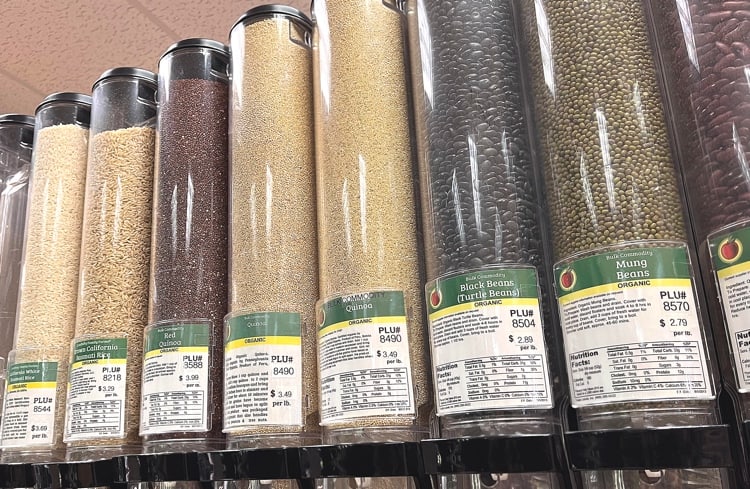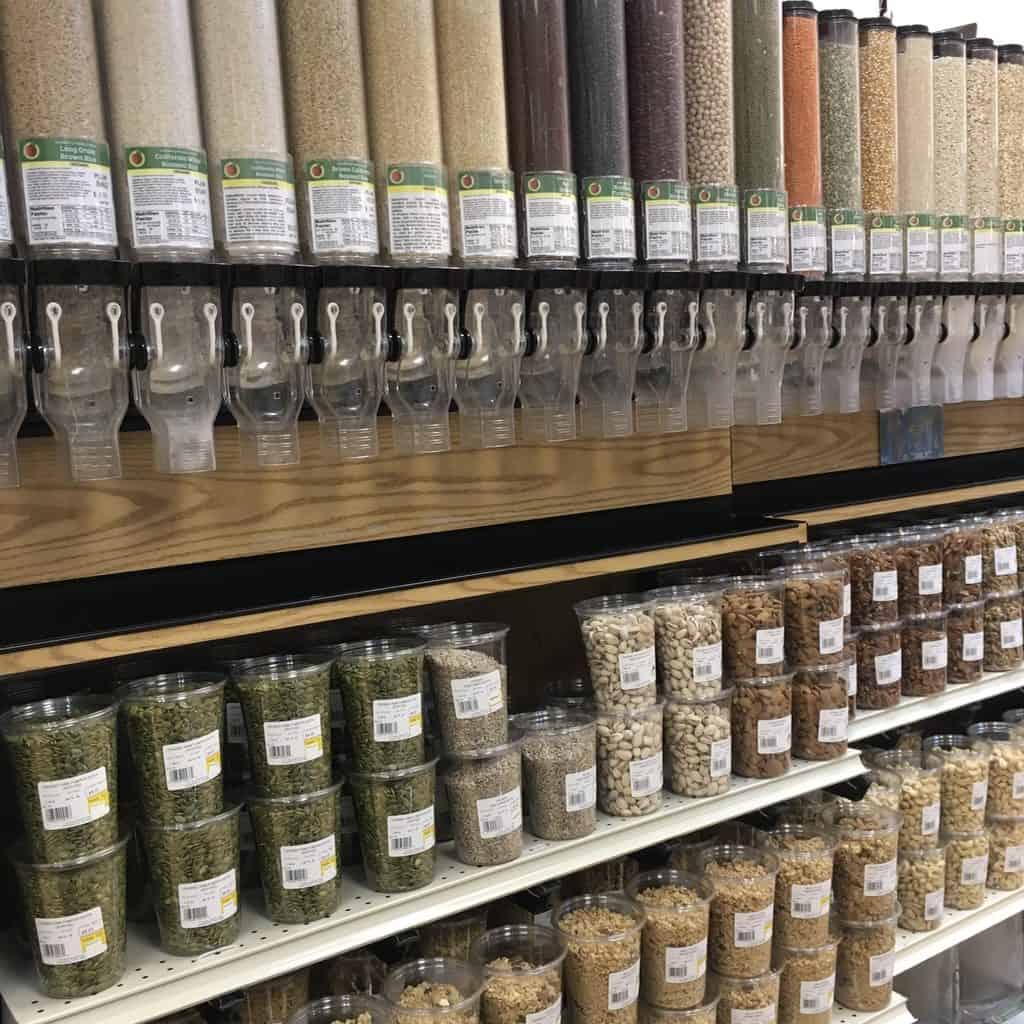Shopping for Bulk Foods: A How-To Guide
Saving money and saving the planet doesn’t have to be hard. It can be as simple as changing the way you shop. Buying bulk foods is easy and economical. It also cuts down on packaging waste and the carbon footprint of your food. Martindale’s has a robust bulk foods section with a large selection of options – and most of our bulk foods are organic and non-GMO. Ready to get started?
How Does it Work?
There are two kinds of bulk products at Martindale’s – packed and unpacked.
Unpacked goods are available in the vertical gravity bins in the bulk aisle. This includes things like different types of rice, legumes, and oats. Here’s how to purchase unpacked goods:
- Use a glass jar from home or a plastic bag from the roll. If you are using your own glassware, please bring it to a cashier to be weighed before you fill it.
- Select what you want to buy.
- Fit the mouth of the bag or jar around the opening at the bottom of the gravity bin.
- Hold the container firmly around the opening and slowly pull the lever. Make sure to only move the lever a little at a time; otherwise, your product will spill out too fast.
- Your bag will start to fill! When you have the amount you want, push the lever back up.
- Take a PLU tag and write the PLU (price look-up) code on it. The code is located on the label of the gravity bin. Use the PLU tag to seal your bag.
You’re all done! Continue shopping as normal. When you go to check out, your cashier will know what to do.
Packed bulk containers feature dry goods that typically remain uncooked. We shovel our own bulk at Martindale’s to provide you with an easy, convenient way to pick up bulk foods. Because our packaging is minimal and is done in-house, it does not incur the same cost or produce the same waste as commercial packaging. These containers are located in the bulk aisle.
Curious about what you can expect to find in the Martindale’s bulk section? Check out our full selection here!
Save Money and Reduce Waste by Buying Bulk Foods
Buying bulk foods is a great way to save money and cut down on waste. The idea is simple; provide dry goods with little to no packaging.
Packaging is not only a major source of waste in our world, it’s also expensive. Packaging alone can double or triple the price of a product. Something as simple as a can of nuts still requires an artist to create the label, a product designer to design the container, a manufacturer to create it, a packing plant to fill it, and a shipper to transport it. At the end of the day, this drives up the economic and environmental costs considerably.
Buying foods in bulk eliminates the cost of designing, producing, and filling the package, and eliminates waste created by excess packaging.
BPA-Free Bulk Foods Packing
Martindale’s packs many of our own bulk foods in-house.
In addition to cutting down on cost and waste, this affords us greater control over what packaging we use.
Our containers are free from BPA, an industrial chemical linked to a number of health problems. They are 100% recyclable and made in part with post-consumer material. They are manufactured in the USA and produced with a percentage of solar power.
Packing in-house also reduces the cost and fossil fuel usage of transport; it’s much more efficient to ship products in 50 lb. bags than in small plastic containers.
Our bulk section has always offered our shoppers tremendous value, with the added bonus of being environmentally friendly and earth-conscious. Now, customers can experience even more savings buying in bulk!
Still have questions?
Buying bulk is easier on your wallet and on our planet. Consider buying your dry goods, such as beans and nuts, in bulk format.
Covid-19 has affected our bulk selection. In an effort to reduce touchpoints throughout the store, we are no longer offering bulk foods in shovel-style bins. Foods that are consumed uncooked, such as nuts, seeds, and snacks, are now found in pre-packed, pre-weighed containers.
Foods that are cooked, such as rice, beans, and lentils, are stored in the self-dispensing gravity bins.


